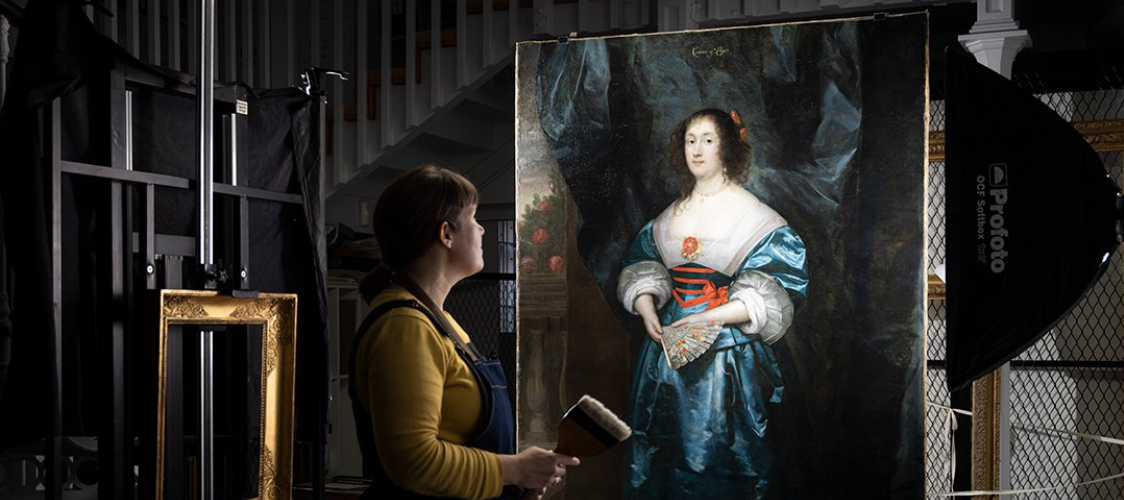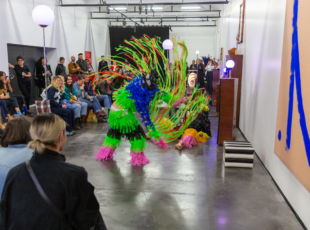Weekly – Friday 22.12.23

Article author :
Friday is weekly: a digest of what the team has seen, read and listened to, and wants to share with you.
‘Diversity’: the fresco at the heart of Brussels ‘la belle’ to celebrate 20 years of same-sex marriage in Belgium
Mired as we are in all of these very sombre (inter)national current affairs stories, we wanted to start this Weekly on a positive and inclusive note.
Flash-back to 2003: Belgium becomes the second European country to grant same-sex marriage. Twenty years later, two talented Argentinian artists have joined their creativity in wedlock to celebrate this anniversary. ‘Diversity’ is the name of their one-of-a-kind fresco, which was inaugurated at the end of November in the Marolles district in Brussels.
On their Instagram account, Vanesa Galdeano and Anali Chanquia explain: ‘The intention is to represent the very essence of diversity and freedom of choice in human relationships. To do this, the mural shows a portrait that does not define a particular gender so in which anyone can identify, including everyone.’
The fresco can be admired at n°353, rue Haute, in Brussels. ‘Medianeras’ (the duo of artists) is currently based in Brussels. Go to their website to discover their works.
Instagram has invented nothing new: retouching your portrait was already (far too) commonplace in the 17th century
It is, to say the least, an astonishing historical news item which we owe to the English media outlet The Guardian. Yet it consists of a discovery made by English Heritage (the institution entrusted with the preservation of historical heritage in England) during its restoration work of a portrait of Diana Cecil, a British person of note close to the royal family circle, dating from 1634.
On cleaning the various layers of paint, the conservators noticed that the face of Diana Cecil had been repainted and modified. The reason? It was necessary to refine her features and plump her lips. Who’d have thought it? Already in the age of the string telephone, women were subjected to unrealistic canons of beauty and sexist stereotypes. Spoiler alert: in fact, that has been the case since the dawn of time.
‘As a modern society with access to digital beauty filters and AI technology, we might think we know better than most eras the temptation to ‘perfect’ our appearance, but the conservation work to Diana Cecil has shown that this is not a new phenomenon,’ explains Louise Cooling, an English heritage curator, in the columns of the newspaper.
Fortunately, owing to the restoration work, Diana has been able to regain her original face, and she is a stunner – in all subjectivity).
The painting is currently exhibited in London.
Think Kylie Jenner’s penchant for fuller lips reflects a very modern beauty phenomenon? Think again! 💄
— English Heritage (@EnglishHeritage) November 24, 2023
After careful conservation, our experts discovered that a 19th-century restorer had given Diana Cecil the Hollywood treatment, including plumper lips and a lower hairline. 🎨 pic.twitter.com/DT5i2NskyZ
Gala Hernández López: the researcher makes films about the community of Incels, the misogynists of the web
It was whilst scrolling during a midday break (a little too long) that we came across the portrait of Gala Hernández López on France Culture. Artist, researcher, doctoral student and documentarist, she has carried out monumental work we wanted to share with you.
She roams the internet on the lookout for the Incel community (primarily consisting of heterosexual and misogynous cisgender men, as Wikipedia confirms).
By means of establishing contact with the community, she has sought to understand (without for all that justifying their behaviour) how these individuals are pushed into extreme violence against women and the way algorithms may influence their beliefs, as well as the representation of contemporary masculinity on the web.
Her work is among others to be found in her mini-documentary ‘La Mécanique des fluides’. It is for that matter in competition for the César 2024 best documentary short film (yes, it’s a real class act).
A story, projects or an idea to share?
Suggest your content on kingkong.





